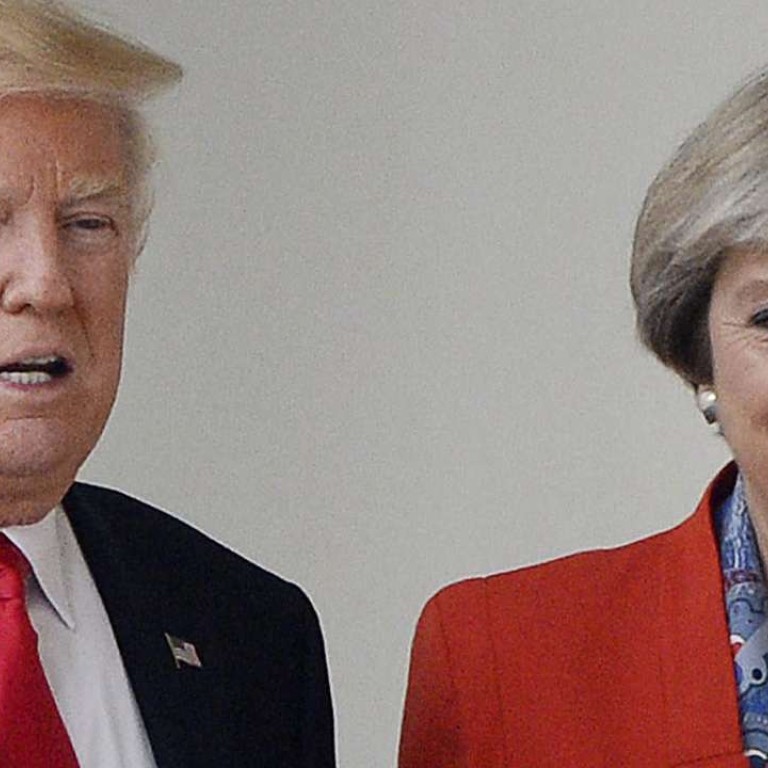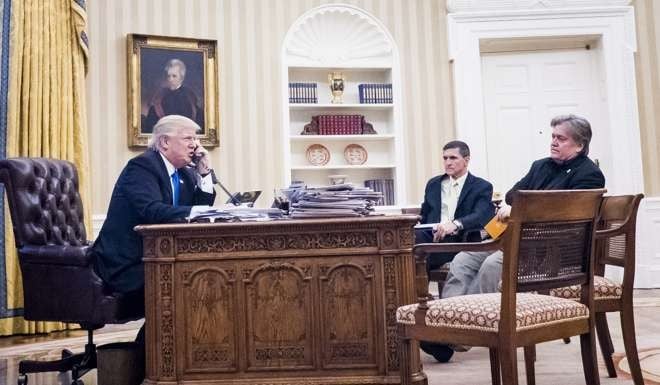
Volatile Trump gives diplomatic meetings whole new character
World leaders will have to avoid offending the US president but confront him when he’s wrong
US President Donald Trump presents a unique challenge for foreign leaders expecting to extract commitments and concessions from the United States on various issues.
Between his total lack of political experience and unusually narcissistic temperament, Trump presents a vagarious and unreliably diplomatic counterparty. How, then, should national leaders and officials interact with this US president?
Japanese Prime Minister Shinzo Abe seemed to have figured out an important part of how to approach Trump when he thrust himself upon the newly elected US president early in November. (Abe was partly making up for a protocol error in meeting Democratic presidential candidate Hillary Clinton during the campaign, but not Trump.)
With Trump, there’s evidence that simply meeting him face to face and being the last person he listens to on an issue will go a long way.
Trump demonstrated some of this when his first meeting with former US president Barack Obama two days after the election gave him “great respect” for Obama, a man he had spent years maligning over conspiracy theories regarding a birth certificate.
Watch: Trump says “don’t worry” about the tough phone calls
With Trump, as in life, showing up is 80 per cent of what counts. The rest is left largely up to luck and one’s own ability to stomach Trump’s less savoury outbursts on topics ranging from the propriety of torture to xenophobia.
British Prime Minister Theresa May did most world leaders a service when she became a guinea pig as Trump’s first overseas state visitor. May’s joint press conference with Trump required the British prime minister to stand silently by as Trump ruminated on his personal support for torture – a crime against humanity under international law.

Other leaders will have to be ready to do the same while knowing their redlines. What May’s visit with Trump additionally reaffirmed is the uneasy prospect many foreign ministries will no doubt face of having Trump conduct a joint press conference with their leaders.
At one point in the Trump-May press conference, when a journalist asked May about her thoughts on US-Mexico relations, Trump diverged sharply with normal diplomatic protocol and spoke on May’s behalf, telling the reporter that May had things “she was much more worried about”.
Leaders will need to be ready for Trump to diverge with protocol at press conferences. Here the US president is far from the first; one recalls former Russian president Boris Yeltsin’s inebriated appearance alongside former US president Bill Clinton at a joint press conference in 1995.
For allies such as Japan and South Korea, there will be concerns that Trump will remain an unreliable counterparty in many ways.
For example, can Japan in good conscience pursue trade negotiations with Trump while the White House insists on 30-day termination clauses?
One perceived misstep could lead the easily provoked Trump to cancel the agreement, costing Abe valuable political capital.
For China – a country seen with deep scepticism and even enmity by this US administration – approaching Trump will be difficult.
President Xi Jinping has already spoken to Trump on the phone during the transition, but the two leaders’ first face-to-face meeting could yield either an unexpected thaw – as Trump takes to Xi like he did to Obama – or precipitate crisis.
Chinese foreign policymakers still do not appear to have a measured game plan for messaging the Trump administration, instead relying on strongly worded opinion articles in official and semi-official media to do their talking.
For allies and adversaries alike, there will come a time when Trump must be chastised and corrected.
Allies and partners will find themselves explaining to the US leader why the world order underwritten by America for the last 70 years matters and must be sustained.
In the end, Trump will be the leader of the world’s most materially powerful and consequential state. As unsavoury and risky as interpersonal diplomacy may seem, it will be a must for every state that maintains formal diplomatic ties with the US.
Ankit Panda is a senior editor at The Diplomat, where he writes on international security, diplomacy and economics in the Asia-Pacific region.

